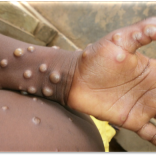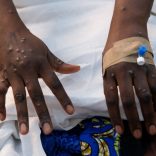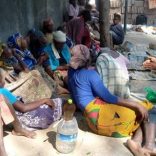Mozambique: No need to isolate mpox patients in health facilities
Mozambique: 41 domestic violence deaths so far this year

File photo: Lusa
Police in Mozambique have already recorded 41 domestic violence fatalities this year, the Sekelekani Communication Studies and Research Centre, a Mozambican civil society organisation, reports.
The figure is among the information released on the International Day of the Girl Child , which was celebrated on Sunday.
The Department of Assistance to Family and Minor Victims of Violence within the Mozambican police general command, one of the entities dealing with this type of crime, has since the beginning of the year processed a total of 6,586 domestic violence cases, the Sekelekani note consulted by Lusa reveals.
Most cases (3,904) are classified as physical violence, 1,259 as psychological violence, 796 as property violence and 478 as serious violence, resulting in 41 deaths.
Often, even after informing the police, the victim (usually a woman) “is strongly pressured by the family to drop the complaint”, department head Marisa Timóteo says. Families generally believe that “domestic violence can be addressed internally”.
“However, the result is the opposite, as the aggressor feels that he has protection within his own family,” Timoteo notes.
In most situations, victims just want the authorities to persuade their husbands stop being violent, without necessarily seeking punitive measures.
“We make it clear that domestic violence is, in our legal system, classified as a public crime and, as such, accountability does not depend on the victim’s wishes,” she stressed.
The fight against premature marriage and domestic violence has motivated public campaigns bringing together a number of high-profile Mozambicans in the fight for the emancipation of women.
It is estimated that half of all Mozambican women aged between 20 to 24 years old were married while they were still minors. Of these, 14% were under 15, according to data from the United Nations Children’s Fund (UNICEF).
International Day of the Girl Child, celebrated on October 11, was instituted in 2011 by the United Nations, with the aim of promoting the protection of girls’ rights worldwide and ending vulnerability, discrimination and violence.












Leave a Reply
Be the First to Comment!
You must be logged in to post a comment.
You must be logged in to post a comment.